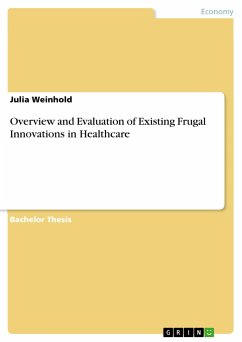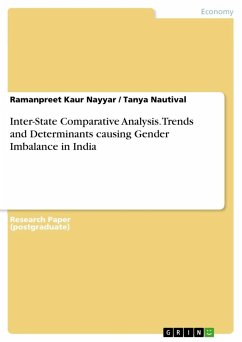Bachelor Thesis from the year 2017 in the subject Economy - Health Economics, grade: 1,7, University of Leipzig (Economics and Management Science), language: English, abstract: The aim of this thesis is to contribute to a more precise understanding of frugal innovations in healthcare and further drawing scientific and entrepreneurial attention to them. With the help of the key elements of their business models, the procedures of ten frugal innovators are examined. All of them develop medical devices as well as services for healthcare delivery. The case studies provide empirical evidence to analyse under what conditions established companies of different types, can successfully commercialise frugal innovations. In this context, the development of a profound understanding of the target market as well as the design of a sustainable financing model, turned out to be the biggest challenges for the innovators. In addition, the success of the innovations is based on the establishment ofa sector-wide network. Furthermore, this study aims to provide a basis for further investigations and the search for healthcare solutions to counteract the issue of medical under-supply in developing countries. The thesis subdivides into four main sections: After the brief introduction, the theoretical foundations and conceptual frameworks are introduced to enable a basic understanding of the topic. In the same place, the significance of healthcare innovations is explained. The second part depicts the scientific discourse and state of the art in the field of frugal product and service development, based on information from extant literature. With the explanation of the applied research methodology and procedure of analysis, the empirical part of this work commences in the third part. Subsequently it portraits ten examples of frugal innovations in healthcare in detail. The fourth section entails the empirical evaluation and discussion of the prior part. It concludes with theoretical and managerial implications and a prospect for the importance of frugal innovations in healthcare. Potential limitations are discussed and recommendation for further research is given.
Hinweis: Dieser Artikel kann nur an eine deutsche Lieferadresse ausgeliefert werden.
Hinweis: Dieser Artikel kann nur an eine deutsche Lieferadresse ausgeliefert werden.








